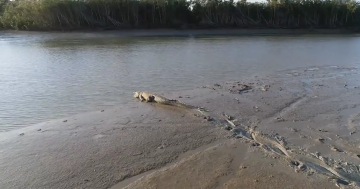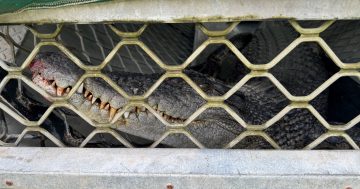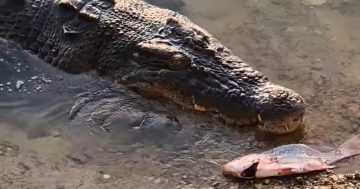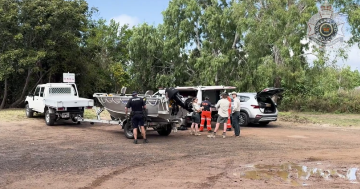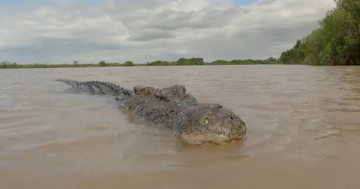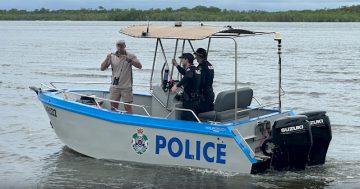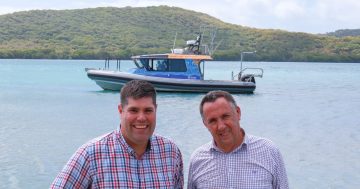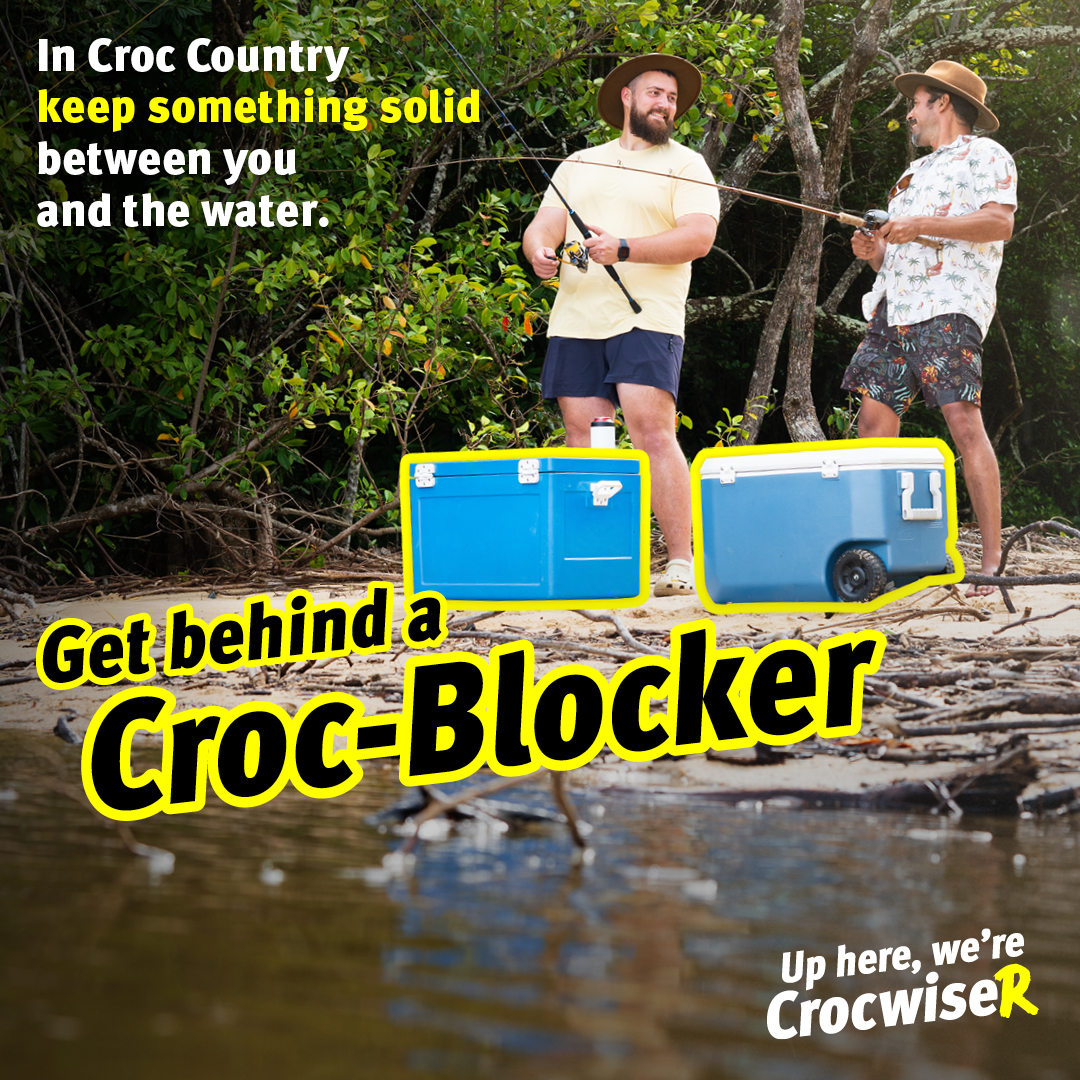
The new campaign includes three key safety tips, including getting behind a “croc-blocker” – ensuring there is something solid, like a log or an esky, between you and the water’s edge while fishing. Photo: Supplied.
Men above the age of 32 who live in north Queensland are the most likely to be the victims of saltwater crocodile attacks, according to research released as part of a new State Government campaign aimed at increasing awareness of the reptiles.
The new Up Here We’re CrocwiseR campaign snapped into action on 22 December and is urging those living in crocodile country, including Cape York and the Torres Strait, to be Crocwise to prevent attacks.
Research has found most attacks happen while people are fishing or boating, and has disproven the urban myth that interstate and international tourists are more likely to ignore safety signage and messaging than locals.
Director Northern Wildlife Operations Lindsay Delzoppo said the ongoing Be Crocwise program was one of the most recognisable safety campaigns in Queensland, adding some locals were found to become complacent if they had not seen a crocodile for a long time.
“Crocodiles are a part of life in northern Queensland, and we want men living in the tropical north to understand and reduce the risks of croc attacks,” he said.
“The research is clear, and it is local men who are putting themselves at risk of an attack when they’re fishing or boating.
“We want the locals to remember three simple Crocwise tips so they can continue to enjoy the amazing fishing and boating opportunities in tropical north Queensland – never wade into the water to retrieve a snagged lure, always use a croc-blocker while fishing from the river or beach, and if you’re on the water, keep your entire body in the boat.
“If you love fishing, reduce your risk by being Crocwise not complacent, and make sure you remind your family and friends to do the same.”
Crocodile sightings can be reported by using the QWildlife app, completing a crocodile sighting report on the Department of Environment, Tourism, Science and Innovation website, or by calling 1300 130 372.
Those in crocodile country should always be Crocwise by following several key safety tips, including expecting the reptiles in all waterways, even if there is no warning sign, camping as far back as possible from the edge of the water, never leaving food, fish frames or bait near the water, and staying well away from crocodile traps.
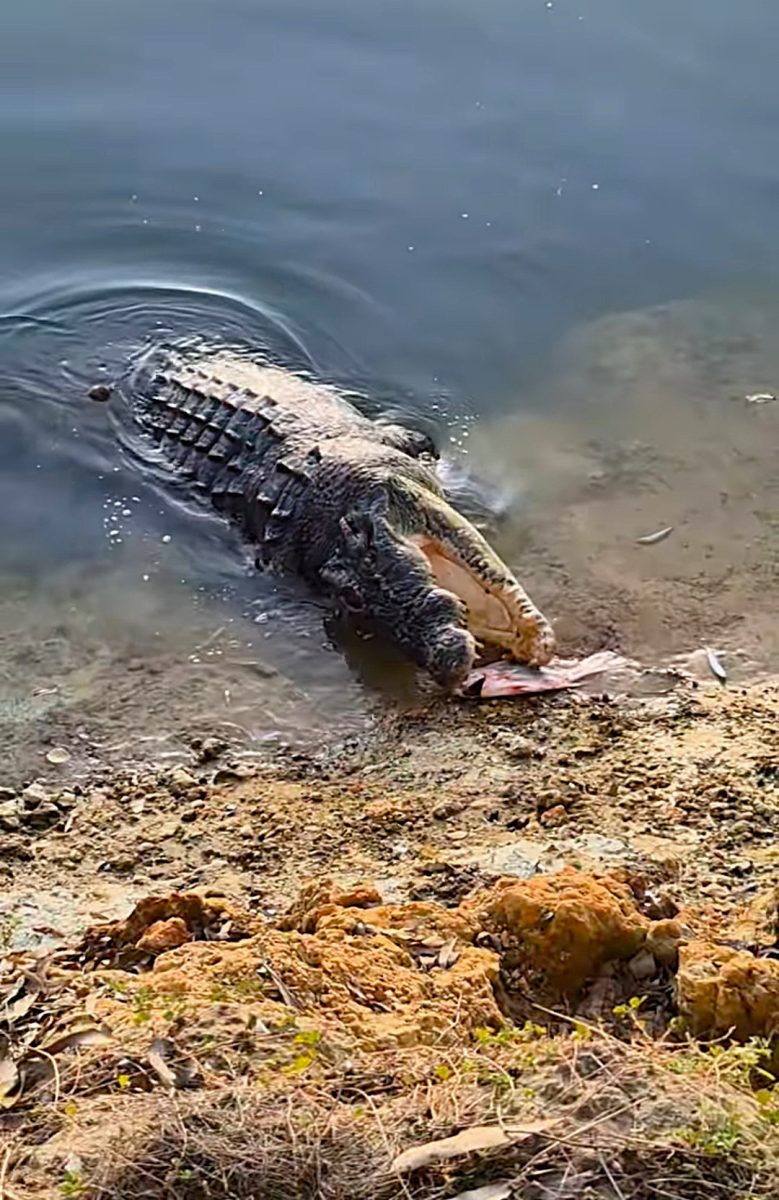
Research released as part of the new Up Here We’re CrocwiseR campaign shows north Queensland men aged 32 are the most likely to be the victim of a saltwater crocodile attack. Photo: Supplied.


